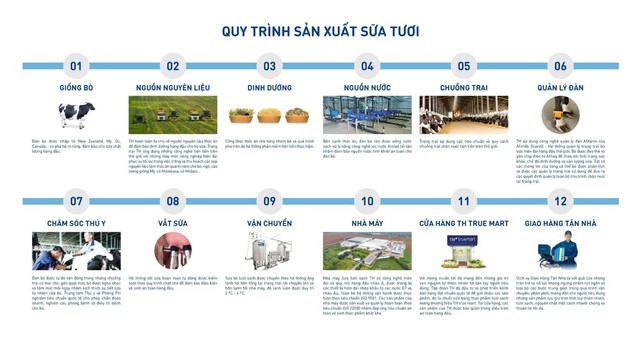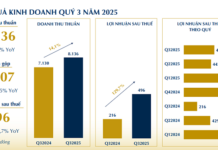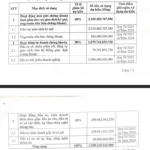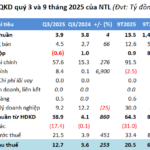Blockchain Technology Empowers Producers to Tell the True Story of Their Products
In international markets, especially in developed countries with stringent food regulations, product traceability has become a legal requirement and a mandatory competitive standard. After the shocking mad cow disease (BSE) outbreak in the early 2000s, Japan swiftly enacted the “Traceability Law for Beef” in 2003. This law mandated that each renowned Wagyu cow be assigned a 10-digit ID code to monitor its entire lifecycle, from farm to table. Japan even employed DNA matching techniques to ensure absolute data accuracy and prevent fraud.
South Korea also implemented a stringent legal system after the 2007-2008 crisis, requiring the disclosure of agricultural and meat origins at business establishments. Since 2020, a smart food QR code-based traceability system on an inter-ministerial database platform has been widely promoted, creating a transparent information network.
In Vietnam, the long-standing challenge of lacking authentic product origin information has plagued the domestic supply chain and has been a primary concern for consumers, especially in the dairy industry, which demands the highest safety standards and directly affects consumers’ health, particularly that of children.
At the National Startup Exhibition (as part of the Exhibition of Socio-Economic Achievements on the journey of 80 years of Independence, Freedom, and Happiness, held from August 28 to September 5, 2025, at the Vietnam Exhibition Center in Hanoi) – where the economic essence and private enterprises contributing to the country’s development are honored – TH Group, a leading producer of fresh milk and clean food, with numerous milestones and contributions to community health, Vietnamese dairy industry, and nutrition over the past 15 years, has made a distinct impression by introducing the application of blockchain technology for product traceability using QR codes. This traceability technology allows for detailed monitoring of the 12-step production process of TH true MILK fresh milk on the NDA Trace platform, a product traceability solution developed by the National Data Association (NDA). TH is the first dairy company to provide comprehensive data for NDA Trace.

TH true MILK leads the way in applying QR codes with blockchain technology, enabling consumers to monitor the entire journey of their milk from farm to table.
With this traceability technology, each batch of TH true MILK products is assigned a unique identifier, allowing for the tracking of the entire journey from raw materials and production to the consumer. All operations involved in creating and circulating the product within the supply chain are recorded and authenticated, preventing any possibility of forgery or tampering. This technology meets the international GS1 standard and is compatible with the global authentication and traceability system, EBSI Trace 4EU, providing comprehensive support for businesses connecting cross-border supply chains.

Deputy Prime Minister Nguyen Hoa Binh experiences the traceability of TH true MILK Topkid products at the Socio-Economic Achievements Exhibition.
At the exhibition area, visitors can visually trace the product’s origin by scanning the QR code on TH true MILK fresh milk packages. By accessing the “Traceability” tab, consumers can learn about the cows’ meals, feeding times, raw materials, milking times, and the entire production process. All information is disclosed transparently, adhering to TH true MILK’s 12-step international standard fresh milk production process.
The returned results also include comprehensive information about the authenticated and identified batch of milk on the NDA Trace platform, such as the origin of raw milk, production details, weight, composition, nutritional content, expiration date, usage instructions, and packaging specifications.

The 12-step production process of TH true MILK fresh milk
Direct Benefits for Consumers
Adopting a product traceability system is a way for manufacturers to transparentize their product origins while empowering consumers with the ability to verify and control their purchases. Now, with just a few simple steps on a smart device, consumers, especially parents, can independently verify and make informed decisions about their purchases based on authentic data.


With just a few simple steps, users can trace back to the very grass the cows grazed on, their meals, milking times, production, and distribution processes, among other details.
Introducing this technological solution, Labor Hero Thai Huong, Founder of TH Group, shared: “TH has had standardized production data and product traceability solutions from day one. Now, we are digitizing this data to further develop traceability technology based on blockchain.”
Ms. Thai Huong believes that to raise a healthy generation, as General Secretary To Lam emphasized, we must start with a foundation of health. For people to be healthy, they need healthy food, and healthy food starts with good raw materials. Therefore, controlling and transparentizing the origin of raw materials is a prerequisite. Traceability is not just a technical tool but a guarantee of product quality and consumer health.
TH’s strategic move is expected to establish a new competitive standard for the entire industry, as transparency becomes the measure of value and a core competitive advantage. This initiative is a continuation of TH’s journey towards market transparency and community health, which the company has steadfastly pursued for the last 15 years.
The Blockchain Company Proposed a Significant Initiative for Da Nang
The Vietnam Blockchain Multi-chain Service Network, or VBSN, is proud to announce its proposal to implement three innovative solutions in the public service area of Da Nang. With a focus on revolutionizing the way services are delivered, VBSN is set to make a significant impact with its cutting-edge technology.
Mr. Nguyen Thanh Nghi: Da Nang’s Potential as a Modern International Financial Hub
The Vietnam Finance Forum 2025, held in the beautiful city of Da Nang, delved into pivotal discussions on a range of contemporary topics. The forum centered around three key pillars: international financial centers, green finance, and strategic technologies.
The Savvy Investor’s Take on Crypto: A Conversation with Sơn Kim Retail’s CIO
“With the evolving landscape of technology, experts believe that the widespread adoption of blockchain applications and digital assets is imminent. As the legal framework surrounding this innovative technology becomes more defined, it is expected that people of all ages, not just the youth, will embrace these advancements.”
Unlocking the Power of Crypto: Da Nang Embraces Basal Pay, the First Compliant Tokenized Payroll Project
On August 26th, the People’s Committee of Da Nang City officially granted a license to Basal Pay, a project that utilizes blockchain technology for domestic transfers aimed at international tourists, to participate in the FinTech sandbox. This controlled experimental framework allows for the testing of new digital financial models.
Why is Blockchain Pivotal in Building Vietnam’s New Financial Hub?
Blockchain is the backbone of modern finance, ensuring transparency, speed, and efficiency in cross-border transactions. This technology is ushering in a new era for the development of global financial hubs. With Vietnam’s vision to establish Da Nang as an international financial center, blockchain is not just a trend but a strategic focal point.









































